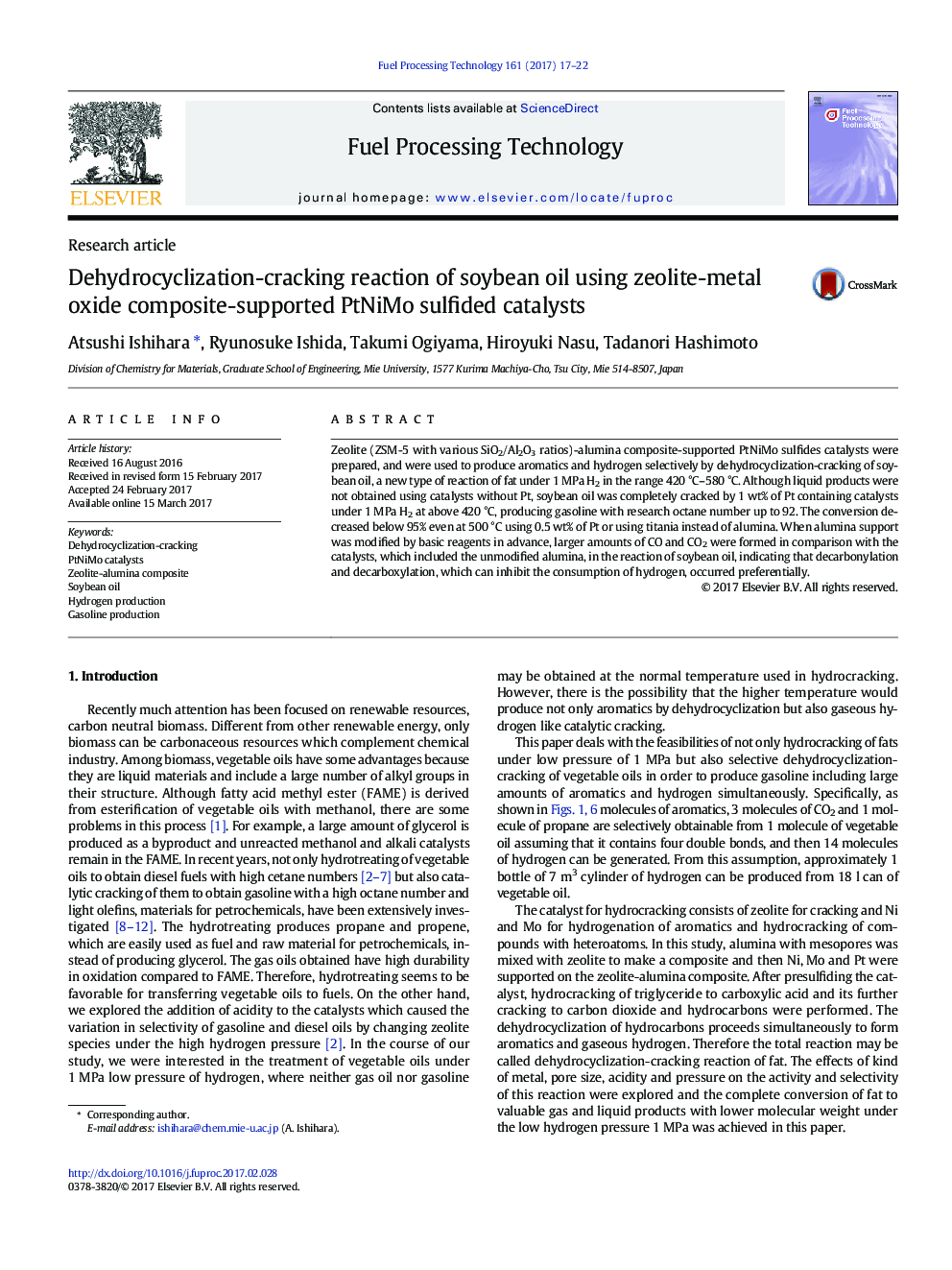| Article ID | Journal | Published Year | Pages | File Type |
|---|---|---|---|---|
| 6476465 | Fuel Processing Technology | 2017 | 6 Pages |
â¢Supported PtNiMo sulfides catalysts converted 100% of soybean oil under 1 MPa H2 at 500 °C.â¢The use of basic reagents for supports increased yields of CO and CO2 by more than 10%.â¢The use of basic reagents for supports promoted decarbonylation and decarboxylation preferentially.â¢Using MgO the selectivity of liquid products of gasoline, kerosene and diesel oil reached 63%.
Zeolite (ZSM-5 with various SiO2/Al2O3 ratios)-alumina composite-supported PtNiMo sulfides catalysts were prepared, and were used to produce aromatics and hydrogen selectively by dehydrocyclization-cracking of soybean oil, a new type of reaction of fat under 1 MPa H2 in the range 420 °C-580 °C. Although liquid products were not obtained using catalysts without Pt, soybean oil was completely cracked by 1 wt% of Pt containing catalysts under 1 MPa H2 at above 420 °C, producing gasoline with research octane number up to 92. The conversion decreased below 95% even at 500 °C using 0.5 wt% of Pt or using titania instead of alumina. When alumina support was modified by basic reagents in advance, larger amounts of CO and CO2 were formed in comparison with the catalysts, which included the unmodified alumina, in the reaction of soybean oil, indicating that decarbonylation and decarboxylation, which can inhibit the consumption of hydrogen, occurred preferentially.
Graphical abstractDownload high-res image (185KB)Download full-size image
